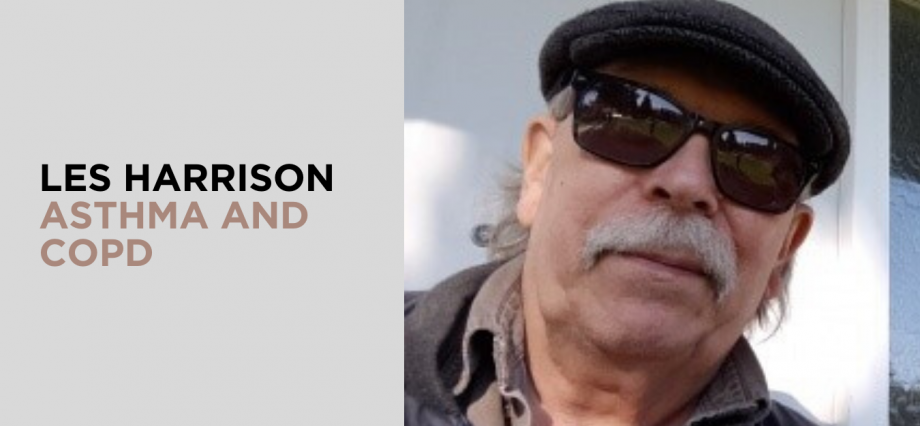I had asthma most of my life, starting at age six. There were no puffers back in that day, so my mother used to boil the kettle and have me bend over a bowl with a towel over my head to inhale the steam. Stress from a divorce reactivated my asthma in my early 30s and I was diagnosed with Severe Bronchial Asthma. That then led to COPD.
Can you tell us a little history of your condition?
I had asthma most of my life. At age 10 it went dormant. I was able to play all kinds of sports and be involved in outdoor activities. In my late 20s and early 30s, I started working in various fields such as sawmills, open pit mining, fuel hauling and transporting asphalt.
When my asthma was reactivated, my doctor put me on a puffer called Atrovent. In 2009 things really went downhill… My normal routines became very difficult and cold air really exacerbated my condition. I experienced frustration because of my limited capacity. Constant shortness of breath, weight loss, weakness and muscle fatigue were all things I lived with. I was also on oxygen.
Were you a smoker?
Yes, I was - big time. I probably smoked for 50 years. I tried every conceivable method to quit over the years, but finally went cold turkey in 2010. Back in my day, a large percentage of people smoked - even doctors when you went to see them. Smoking was allowed on planes, in malls, theatres, driving in cars with kids and in the home. Second hand smoke was everywhere!
What helped you manage your condition?
In 2010, I found out about a twelve week Pulmonary Rehab program, through my specialist, Dr. Irving, at Ridge Meadows. Dr. Irving told me that there was no more truck driving allowed at this point. I was angry to hear this, as driving was my livelihood. It was at this point that I was diagnosed with COPD as well.
The Pulmonary Rehab helped with my newfound COPD. It gave me knowledge. I learned about proper diet, ways to exercise properly and how to mentally deal with my condition. It also helped with the emotional side. When I began the program, I had a real chip on my shoulder. I thought, "I don't need this"! I quickly mellowed my thinking on that by listening and learning.
If I were explaining the experience to someone who might benefit from it, I would tell them about the program’s compassion and care, how it eases tension and how just having people there who listen helps. There is great camaraderie and I’ve formed lovely friendships. As far as the exercise goes itself, you achieve a feeling of great satisfaction when you notice subtle changes in your muscle tone, strength and shape. It is absolutely the best thing you can do for yourself if you are incapacitated with a lung disease.
Are you still taking the twelve week program?
I am now on a maintenance program. I was asked to stay on as a mentor to new participants. Once these people see how new and improved I am because of my transplant and the pulmonary rehab program, they can learn from my experience. I will always be involved not only for my own health, but for anyone I can be there for.
Attending rehab has become one of my favourite pastimes – alongside exercising, walking my dog, Spud, Tai Chi and cooking.
What would you say to others suffering from lung conditions?
Learn about your condition and see a doctor/specialist for any concerns. Try to be happy and keep a positive attitude. It’s not always easy, I know, but realize that your condition is a journey. You've got to work with it, not against it. Exercise to your ability. Never, ever give up!

